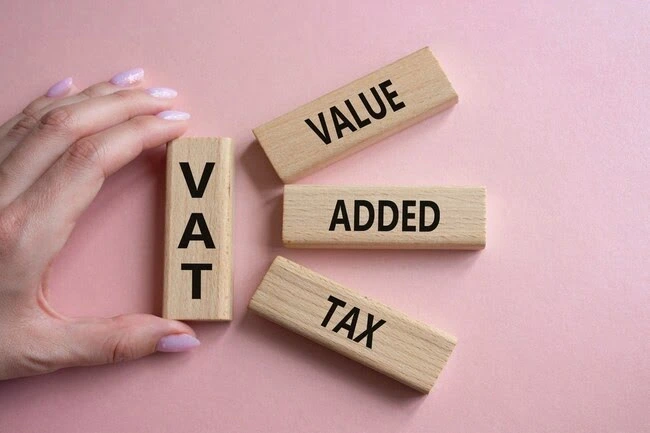Saint Lucia is a breathtaking island nation in the eastern Caribbean, famous for its twin volcanic peaks, the Pitons, and its lush tropical scenery. Beyond its natural beauty, Saint Lucia is known for its political stability, investor-friendly climate, and strong legal system based on English Common Law. The country’s economy focusing mainly on tourism, financial services, real estate, and agriculture. Tourism is the backbone of the economy, attracting thousands of visitors each year to its luxury resorts, beaches, and eco-tourism sites. The financial services sector continues to expand, offering international business and offshore banking opportunities with attractive tax advantages. Real estate development and construction are also booming, driven by increasing foreign investment in high-end properties and resorts.

The country also offers a Citizenship by Investment (CBI) program, which allows investors to become citizens in just 12 – 18 months. Saint Lucia’s Citizenship by Investment (CBI) Program, launched in 2016, is one of the most respected in the Caribbean. It allows investors to obtain citizenship through several approved options like a contribution to the National Economic Fund, investment in government approved real estate, enterprise projects, or non-interest-bearing government bonds.
Investors benefit from visa-free or visa-on-arrival access to over 147 countries, including the UK, Schengen states, US and Singapore. Moreover, Saint Lucia imposes no personal income, inheritance, or capital gains tax on non-residents, making it an ideal destination for global entrepreneurs and investors seeking financial freedom and international mobility.
Saint Lucia Tax System Overview | Tax Benefits for Investors in Saint Lucia
Saint Lucia offers one of the most attractive and investor-friendly tax environments in the Caribbean. The island maintains a transparent, simple, and efficient tax system that encourages both local and foreign investment. There is no capital gains tax, dividends and no inheritance or estate tax, and no wealth tax. This makes the country particularly appealing for high-net-worth individuals, business owners, and investors seeking financial privacy and long-term asset protection.
Personal Income Tax is applied only to income earned in or from Saint Lucia. Both residents and non-residents are taxed on income exceeding XCD $18,400 per year, but CBI citizens who do not reside in Saint Lucia are not subject to local income tax unless they earn Saint Lucian sourced income. This means that investors holding Saint Lucian citizenship but living abroad enjoy complete tax freedom on their global income. corporate tax in Saint Lucia are competitive, with businesses typically paying 30% on chargeable profits. and vat also only 12.5% on most goods and services, while essential goods, exports, and certain tourism-related services may benefit from zero-rated or exempt status.
In Saint Lucia, every individual who earns taxable income must file an annual income tax return with the Inland Revenue Department (IRD). The due date for submitting this return is 31st March of each year, covering income earned during the previous calendar year.
If a taxpayer fails to file on time, a penalty of 5% is imposed on the chargeable income. This penalty is in addition to any outstanding tax due, and interest may also accrue until full payment is made. Chargeable Income refers to the total income of an individual after all approved deductions and allowances have been subtracted. These deductions may include certain employment-related expenses, contributions to pension schemes, and personal allowances as permitted by Saint Lucia’s tax regulations.
Who is Resident in Saint Lucia ?
A resident is generally someone who lives in Saint Lucia and is present in the country for tax or legal purposes. Residency is often determined by physical presence, usually spending a minimum number of days in the country (for tax purposes, it can be 183 days( half of the year approximately ) in a year, but this depends on context. Residents are subject to local tax rules on income generated in the country, though Saint Lucia does not levy personal income tax.
Who is Non-Resident Employees ?
Non-residents (people who do not live in Saint Lucia) generally do not contribute to the Social Security system unless they are formally employed by a Saint Lucian employer and covered under the National Insurance Corporation (NIC). However, non-residents are subject to withholding tax on Saint Lucia sourced income such as dividends, royalties, interest, rent, and certain service fees. Income earned outside Saint Lucia is not taxed.

Who is a CBI citizen? Does a citizen who obtains citizenship through the CBI program also consider as a regular resident in Saint Lucia?
Saint Lucia’s Citizenship by Investment (CBI) Program does not require applicants to reside in the country. Citizenship can be maintained without any minimum stay, and CBI citizens are not automatically considered tax or Social Security residents unless they choose to live or work in Saint Lucia.
Obtaining Saint Lucia citizenship through the Citizenship by Investment (CBI) program grants you full legal nationality, but it does not automatically make you a tax or Social Security resident. Unless you choose to live or work in Saint Lucia, you are considered a non-resident for tax purposes. CBI applicants can maintain their citizenship without any minimum stay requirement, allowing them to enjoy the benefits of Saint Lucia citizenship while residing abroad.
Please note that if you obtaining CBI citizenship alone does not make you a tax resident. You are legally a citizen, but tax residency depends on physical presence in the country with valid local address.
Corporate Tax
Corporate tax in Saint Lucia is applied to all income earned by a company, whether from local or foreign sources. Companies are required to file their income tax returns within three months after the end of their financial year. The tax residence of a company is determined by the country in which it is managed and controlled. Resident companies are taxed on their worldwide profits, while non-resident companies earning profits through a permanent establishment in Saint Lucia are subject to a corporate tax rate of 33.3%. Income earned by non-resident companies from sources outside of a permanent establishment in Saint Lucia is subject to a withholding tax of 25% on the gross amount.
Submitting Financial Records with Corporate Tax Returns : Corporate tax returns are based on the calendar year (January 1 to December 31), while financial statements follow the company’s fiscal year, which may vary depending on the organization. There are no universal rules for fiscal year start and end dates; these are determined by each company. Due to the complexity of financial reporting, it is recommended to hire a certified accountant or accounting firm to ensure accuracy in preparing financial statements.
Corporate Tax Instalments :
Most corporations are required to pay corporate income taxes in instalments, which are partial payments of the total tax owed for the year. This ensures that corporations are treated similarly to individuals who have tax deducted at source. Some new companies may be exempt from instalment payments during their first year, but any taxes owed must be paid at the end of the first financial year. Instalment payments are generally due quarterly on June 25, September 25, December 25, and March 25. After the first year of operation, corporations receive an instalment notice by mail, which must be completed and submitted along with the payment on the due dates. Instalment amounts are usually based on the prior year’s corporate tax liability.


if you are building a new home, you can get a one-year exemption from paying property tax starting from the date your house is completed. This tax relief is offered by the Inland Revenue Department and applies only to newly constructed residential properties.
How to pay tax in Saint Lucia ?
What is PAYE (Paye As You Earn) ? PAYE (Pay As You Earn) is primarily for personal income tax on salaries and wages. It is designed to collect tax directly from employees’ employment income as it is earned.
Applies to:
Salaries
Wages
Bonuses or other employment-related payments
Does NOT typically apply to:
Corporate income
Rental income
Investment income (dividends, interest, royalties)
Self-employment or business profits
Value Added Tax (VAT)
In Saint Lucia, the Value Added Tax (VAT) is applied to most goods and services at rates of 12.5%, 10%, or 0%, depending on the category. Businesses must be registered with the Inland Revenue Department (IRD) and have annual taxable sales exceeding XCD 400,000 to charge VAT. It is collected at each stage of production or sale and added to the selling price. Zero-rated supplies (like exports and essential goods) are taxed at 0%, allowing businesses to claim input tax credits, while exempt supplies (such as financial and educational services) are not subject to VAT or input claims. VAT refunds can be claimed for excess credits, particularly when most of a business’s activities are zero-rated.
Your VAT registration is based on information supplied to Inland Revenue Department (IRD) when you completed the VAT Registration Form. A registered taxpayer must notify the IRD in writing within twenty-one days (21) days of any change in the particulars of the business provided in the application for registration; or the closure of the business. you must also inform the IRD when there is a:

Social Security Contributions
In Saint Lucia, Social Security contributions are administered by the National Insurance Corporation (NIC) to provide financial protection for employees and their families in cases such as retirement, sickness, maternity, employment injury, or death. Both employers and employees are required to contribute 5% of the employee’s gross salary each, making a total monthly contribution of 10%. Employers are responsible for deducting the employee’s share from their salary and remitting both portions to the NIC by the 15th of the following month. However, non-residents and foreign investors are generally not required to contribute, unless they are formally employed in Saint Lucia under the NIC system.
Property taxes
In Saint Lucia, property tax is levied on the market value of land and buildings and is administered by the Inland Revenue Department (IRD). The tax applies to both residential and commercial properties, whether owned by residents or non-residents.
Property owners are required to file an annual return declaring their property details and value. The rate of property tax varies depending on the type and use of the property:
Property tax payments are generally due by September 30 each year, and late payments may attract penalties and interest.
Final Thought: Taxation for Investors in Saint Lucia
Saint Lucia offers a favorable and transparent tax environment that makes it highly appealing to global investors and individuals seeking second citizenship. With no capital gains tax, no inheritance tax, No dividend tax, and no wealth tax, investors can enjoy greater financial freedom and asset protection. The 12.5% VAT, competitive corporate tax rates, and reasonable property taxes ensure that the country maintains a stable revenue system without overburdening taxpayers. Additionally, CBI citizens and non-residents are only taxed on income generated within Saint Lucia, providing excellent opportunities for tax-efficient global investment. Overall, Saint Lucia’s balanced tax system supports business growth, encourages foreign investment, and enhances its reputation as a secure and investor-friendly Caribbean destination.
Investors, including those participating in the Citizenship by Investment (CBI) program, enjoy a very favorable tax environment in Saint Lucia
Because Saint Lucia allows dual citizenship, you can keep your original passport while enjoying the benefits of the Saint Lucia passport including visa-free travel to numerous countries and a favorable tax regime.



